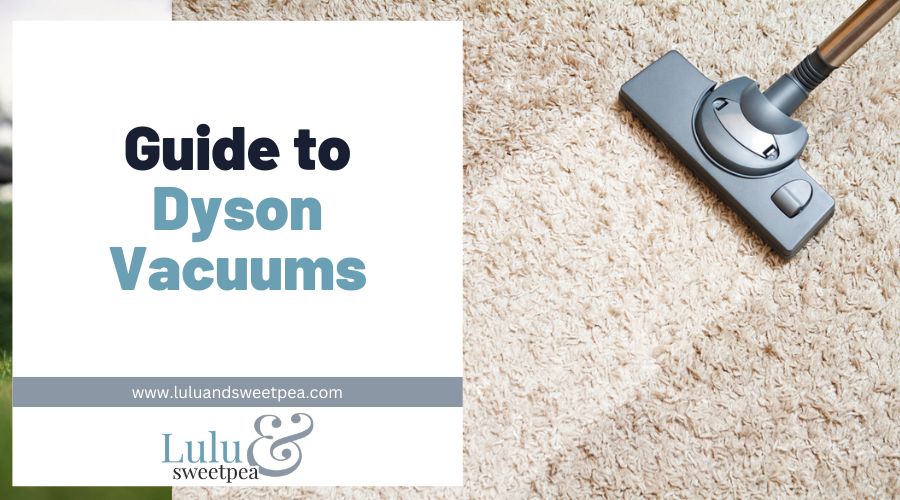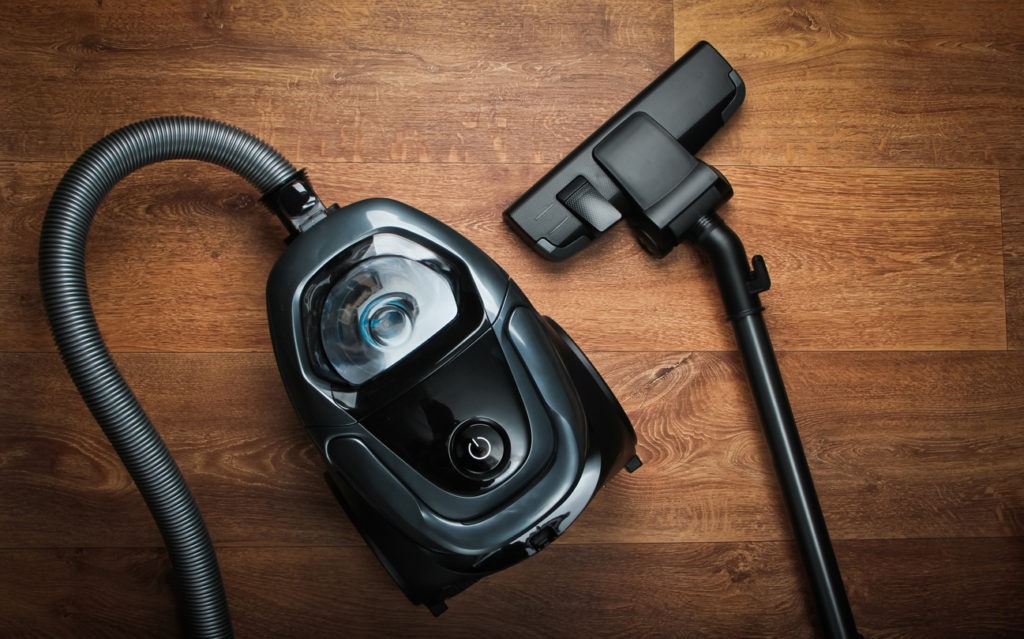History of Dyson
The idea of Dyson vacuums was set in motion in 1978 when the founder of Dyson, James Dyson, found a problem with a vacuum he was using. He figured that the vacuum’s bag was clogged up with dirt, causing the suction performance of the vacuum to diminish over time. James Dyson used an idea from his factory where he developed an industrial cyclone tower that separated paint particles from the air using the principle of centrifugal force.
With the same principle in mind, he began to work on a bag-less vacuum that functioned without a bag. Finally, after five years and over 5,000 prototypes, he designed and pioneered the world’s first bagless vacuum cleaner.
Dyson sold its first product named ‘G-Force’ in Japan which was well-received by the Japanese market because of its superior performance and quickly became a status symbol. James Dyson was so good at making vacuums that he was awarded knighthood by the Queen of England.
From the sales of G-Force, James Dyson established his company, Dyson Ltd. In 1993, the company founded its own research center in the United Kingdom and developed a new vacuum called ‘DC01’ which was based on dual cyclone technology that captured smaller particles of dust and delivered 100% suction power all the time.
The ‘Dyson’ Brand
With such innovative products, Dyson has grown rapidly and is one of the leading vacuum companies in the world. Its products are trusted for their reliability and performance in over 65 countries and the company employs over 1,000 engineers that are constantly coming up with newer and better vacuum cleaners. In 2018, Dyson announced that the company will halt the development of new corded vacuums and instead focus on cordless technology.
Presently, Dyson holds a dominant position in the market with more than 20% market share globally and over 50% in the United Kingdom. In addition, it has over 3,000 patents for more than 500 product inventions.
Their current product categories are:
- Vacuum cleaners
- Haircare products
- Fans and heaters
- Hand dryers
In the vacuums category, Dyson offers the following types:
- Uprights
- Cylinders
- Cordless
Dyson Vacuum Cleaners Product Range
Dyson Cordless Stick Vacuums
Dyson offers a wide range of cordless stick vacuums that cater to different needs of their consumers, ranging from cleaning up pet hair to vacuuming the entire house in one go. Dyson cordless stick vacuums are among the most technologically advanced products available in the market.
Their cordless stick vacuums series is named as ‘V’ and the latest model that was released is the Dyson V15. The primary unique selling point of Dyson’s cordless stick vacuums is the integration of intelligent technology in them that make vacuuming a much easier job. For example, their latest models include a laser bar that emits a light which reveals any invisible dust or dirt particles and a screen that displays the overall usage statistics.
In addition to this, these vacuums range from having 40 minutes to 120 minutes of run time with charging time of 2 hours to 6 hours. They are lightweight as well which allows the users to carry them conveniently, while weights range from 5 lbs to 8 lbs.
Moreover, their bin capacities also come in a wide range to accommodate different usages — ranging from 0.1 to 0.50 gallons.
Most of Dyson cordless stick vacuums also come with tools that add to the value of the product; for example, instant release wand, pet hair grooming tool, digital Motorbar cleaner head, fabric & mattress tool, and low-reach adapter. These vacuums are also relatively quiet as they produce a noise level of 70 to 71 decibels depending on the mode being used.
| Pros | Cons |
|
|
Dyson Upright Vacuums
Dyson’s upright vacuums come in two primary models: Dyson Animal Ball 2 and Dyson Animal Ball 3. Both of these come in a wide range of variants that offer different features and tools.
Dyson’s upright vacuums offer great suction power ranging between 200 AW to 227 AW. The bin capacities also come in varieties between 0.4 to 0.5 gallons and offer an easy and hygienic way to dispose off dirt in the bin with their ‘point-and-shoot’ feature.
These upright vacuums are suitable for those looking to perform a deep clean of their house but also cater to the debris and mess made by their pets. On top of this, they come with different tools for different situations such as articulating hard floor tools, multi-angle brush, stair tool, and carbon fiber soft brushing tool.
Their vacuums use Dyson’s renowned cyclone technology that results in solid suction power. The latest upright vacuum models come with advanced whole-machine filtration which means that they capture 99.97% of the dirt that is as small as 0.3 microns, whic is as small as a lot of bacteria.
| Pros | Cons |
|
|
Dyson Canister Vacuums
Dyson’s canister vacuums are only available in one model in the United States, which is the Dyson Big Ball Mutlifloor vacuum. As with the rest of their vacuums, their canister vacuums come with their radial cyclone technology and have good suction power.
Because of their nature, canister vacuums by Dyson have a large bin capacity of around 0.42 gallons and self-rights itself whenever it is toppled and offers cords of lengths up to 35 feet. These vacuums also come with a variety of tools.
| Pros | Cons |
|
|
For your convenience, we have also listed the current and previous models released by Dyson under their cordless stick vacuums, upright vacuums, handheld vacuums, and canister vacuums models.
Dyson Cordless Stick Vacuums
- Dyson V12
- Dyson V15
- Dyson Omni-Glide
- Dyson V11
- Dyson V10
- Dyson V8
- Dyson V7
- Dyson V6
- Dyson Outsize+
Dyson Handheld Vacuums
- Dyson Humdinger
- Dyson V7 Handheld
- Dyson V6 Handheld
Dyson Upright Vacuums
- Dyson Ball
- Dyson Cinetic Big Ball
- Dyson Multifloor Ball 2
- Dyson Animal
Dyson Canister/Cylinder
- Dyson Big Ball Multi floor
Frequently Asked Questions (FAQ)
1. How loud are the Dyson stick vacuums?
The noise the Dyson stick vacuums produce depends on the setting being used. The popular Dyson V15 produces between 71 to 76 decibels.
2. Are Dyson vacuums HEPA certified?
Please see specifications for individual products to confirm. In general, yes, e.g. the Dyson V15 Detect Absolute is HEPA certified and picks up 99.97% of microscopic dirt.
3. Do Dyson vacuums come with a warranty and/or guarantee?
Yes, Dyson vacuums offer 2 years of warranty on cordless vacuums, 5 years guarantee on corded vacuums and 1-year warranty on accessories. You need to activate the guarantee through Dyson’s website.
4. Are Dyson vacuums energy efficient?
Dyson vacuums are super energy efficient as they consume 50% less electricity than other vacuum cleaners.
5. What is the built material in Dyson vacuums?
The most common built material in Dyson vacuums is High Impact Polystyrene (HIPS) plastic.
6. Are Dyson vacuums high-end?
Yes, Dyson vacuums are targeted towards the high-end market segment and sell at high price points relative to their competitors.
7. What is the best Dyson vacuum for pet hair?
The Dyson Ball Animal 3, Outsize Absolute, and V12 Detect are solid choices for pet hair.
8. Are Dyson vacuums waterproof?
The company does not recommend its users to expose the vacuum machines to water.
Conclusion
Dyson vacuums are great choices when shopping for vacuums in different categories as they have a global reach in over 65 countries and offer a wide range of vacuums that are high-tech. However, their high price point and issues with the built quality & maneuverability are areas of concern that should be considered when buying a Dyson vacuum. However, no product or brand is perfect. Dyson vacuums might be a little more expensive in the competition, but are backed by decades of innovation, solid reputation and smart features, which overall make the brand a good value for money.
If you need help in choosing a vacuum cleaner, our Guide to Picking the Right Vacuum Cleaner for Your Needs might help you.



